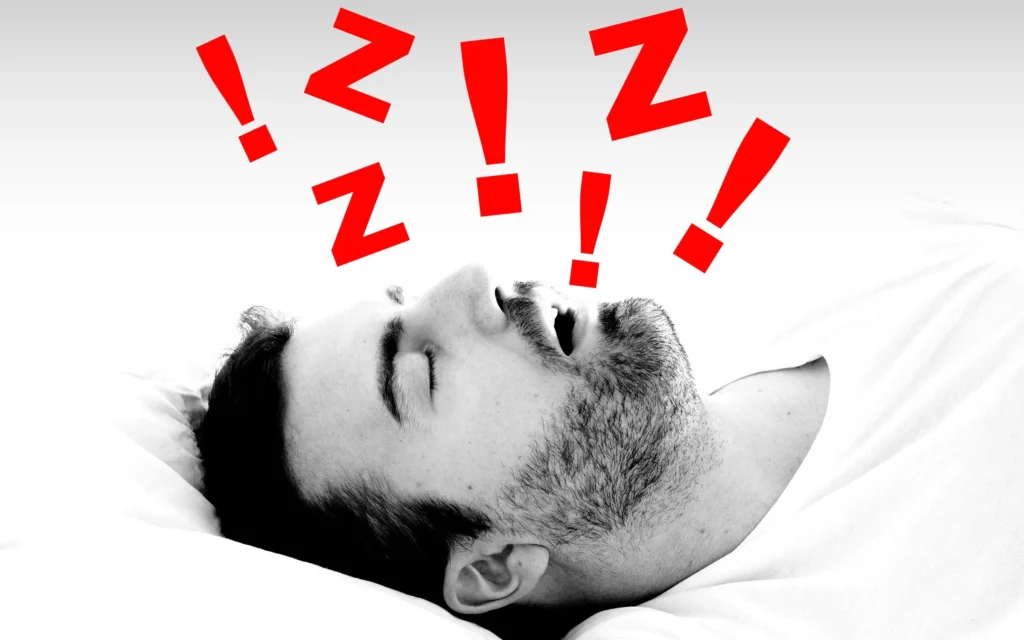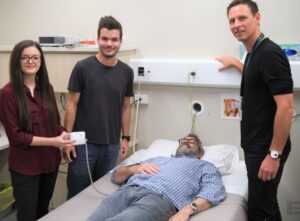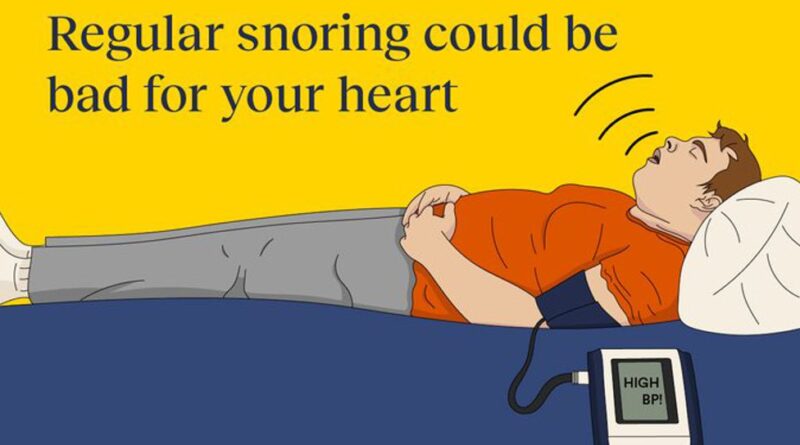Regular snoring could be bad for your heart
That loud snoring keeping you up at night could be more than a noisy annoyance – it could be an early warning sign of dangerous hypertension.

New research from Flinders University sleep experts found that people, particularly overweight middle-aged men, who regularly snore at night are more likely to have elevated blood pressure and uncontrolled hypertension.
The study, published in the prestigious Nature Digital Medicine journal is the largest objective study and the first to use multiple night home-based monitoring technologies over a prolonged period to explore the association between snoring and hypertension.
“For the first time, we can objectively say that there is a significant connection between regular nighttime snoring and high blood pressure,” says lead author Dr Bastien Lechat from Flinders Health and Medical Research Institute (FHMRI) and the College of Medicine and Public Health.
“We found that 15 per cent of all participants in the study, who were primarily overweight men, snore for more than 20 per cent of the night on average and that this regular nightly snoring is associated with elevated blood pressure and uncontrolled hypertension,” says Dr Lechat.
“These results emphasise the significance of considering snoring as a factor in healthcare and treatment for sleep-related issues, especially in the context of managing hypertension.”

Snoring is a common occurrence, affecting a large percentage of the population, and is often underestimated in terms of its negative health implications. Snoring and sleep apnoea often overlap indicating shared common causes.
“We observed that in those who snore regularly the risk of having uncontrolled hypertension was almost double. This risk almost doubled again in people who snored regularly and had sleep apnoea versus those who did not snore regularly,” says Professor Danny Eckert, Director of Sleep Health at Flinders University and senior author of the paper.
Snoring alone may also serve as an early warning sign of high blood pressure, as poor sleep quality due to snoring may worsen the risk of hypertension.
Hypertension is the medical term for high blood pressure over a long period of time. It can lead to serious health problems such as heart failure, stroke, heart disease or kidney disease.
The study used sleep tracker data collected by an under-mattress sensor to detect snoring and sleep apnoea, along with an FDA-registered at home blood pressure monitor in more than 12,000 participants globally over a nine-month period.

“This is the largest study to date investigating the potential relationships between snoring, sleep apnoea and hypertension using objective assessments in people’s homes, and it reveals important insights into the potential consequences of snoring on hypertension risk,” says Dr Lechat.
“It also highlights the need to consider snoring as part of clinical care and management of sleep problems, particularly in the context of hypertension management.
“The findings of this study pave the way to further investigate whether therapeutic interventions directed toward snoring can reduce hypertension and reduce the risks associated with it,” he adds.
If you experience snoring along with signs of inadequate sleep, excessive sleepiness or observed breathing issues during sleep, it’s advisable to have a conversation with your doctor or a specialist who may recommend a sleep study. (Flinders University)



